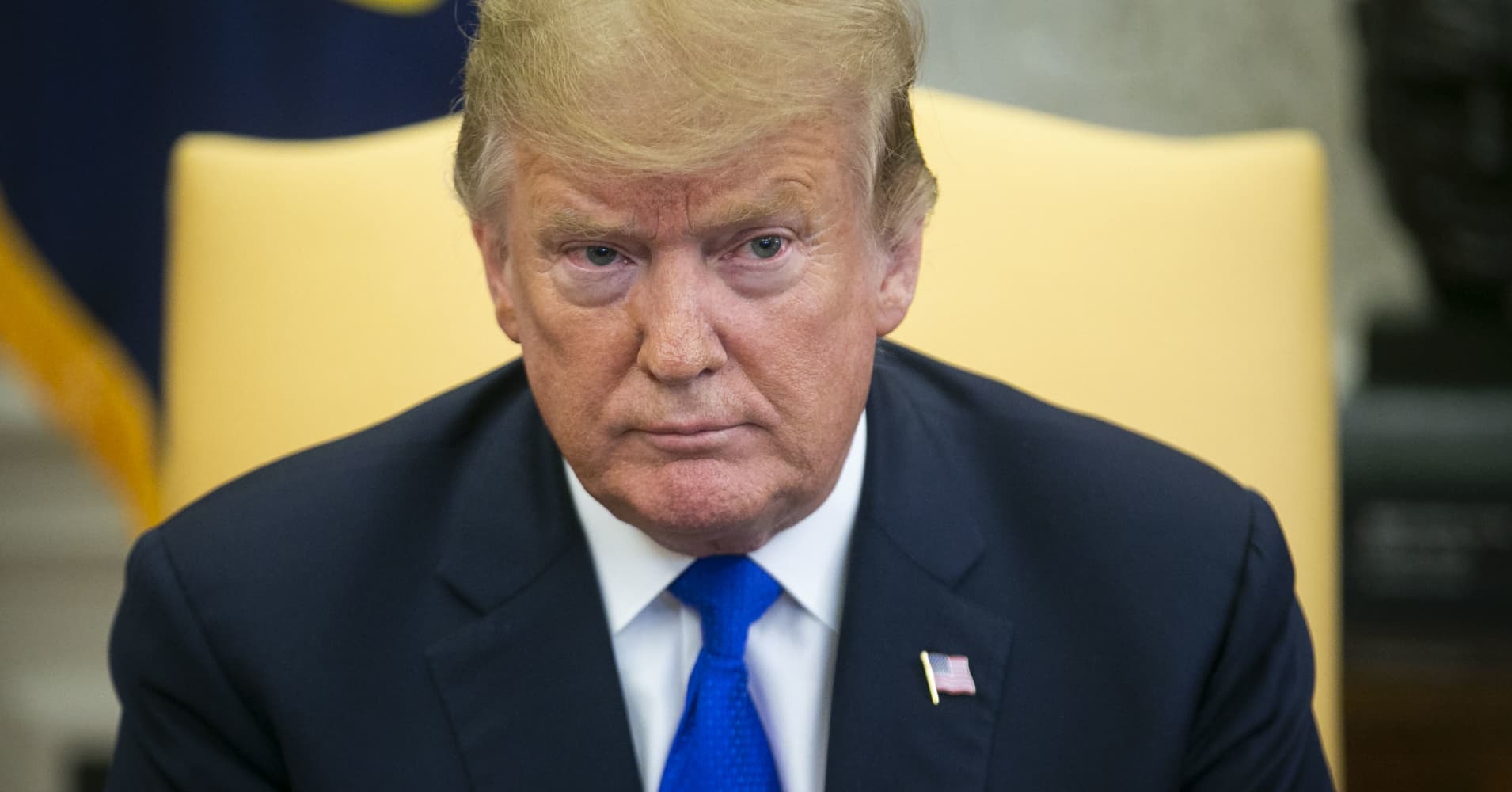
President Donald Trump on Monday touted poll results that appeared to show more Americans than ever siding with his oft-repeated accusation that special counsel Robert Mueller's Russia probe is nothing more than a "witch hunt."
But some polling experts took issue with the phrasing of the survey question, saying it may have skewed the results.
"President Trump has called the Special Counsel´s investigation a 'witch hunt' and said he´s been subjected to more investigations than previous presidents because of politics. Do you agree?" the new USA Today/Suffolk University poll asked 1,000 registered voters in live telephone interviews between March 13 and 17.
The survey found that 50 percent of respondents said they agreed with the president's view of Mueller's probe of Russian election meddling and possible Trump campaign collusion in the 2016 presidential election.
Forty-seven percent disagreed, while 3 percent were undecided, according to the survey. The poll has a margin of error of plus or minus 3 percentage points for the total sample results.
Trump, who regularly decries the nearly 2-year-old Mueller probe as a politically motivated witch hunt, was quick to highlight the results of a survey that appeared to show the public on his side.
Trump TWEET Wow! A Suffolk/USA Today Poll, just out, states, "50% of Americans AGREE that Robert Mueller's investigation is a Witch Hunt." Very few think it is legit! We will soon find out?
But multiple polling experts took exception to the structure of the question.
"I'm sorry to say this question violates three basic principles of questionnaire design," said Gary Langer, president of Langer Research Associates, which polls for ABC News and others.
Langer said in an email to CNBC that the question is "triple-barreled" because it asks three things within a single question: whether the probe is a witch hunt; whether Trump has been subjected to more investigations than other presidents; and whether those probes have been lodged because of politics.
"Answers to each can differ," Langer said.
He added that asking respondents if they agree — without asking if they disagree — makes the question "unbalanced." And agree-disagree questions in general are "fundamentally biasing, because they lack the alternative proposition," Langer said.
"In sum, it is a very good idea, in survey questions, to ask one thing at a time, and to do so in a balanced and neutral way," Langer said.
Other pollsters agreed.
Patrick Murray, director of the Monmouth University Polling Institute, tweeted his own gripes with the question.
Murray TWEET 2. The unbalanced response option -- we have oodles of evidence that the number of positive responses goes up with the "agree" option is presented without explicitly presenting "disagree" as a choice as well.
Veteran Democratic pollster Geoff Garin tweeted: "This is a badly written poll question, because it is asking two different things at the same time. Are respondents agreeing that the investigation is a witch hunt or that Trump is subjected to more investigations than other presidents?"
David Paleologos, founding director of the Suffolk University Political Research Center, responded to some of the criticism in an email to CNBC.
"The statement links President Trump to his viewpoint on the investigation. If respondents were conflicted in any way, they opted for 'undecided' or 'refused,'" Paleologos said.
Some prior polling on the witch hunt topic showed smaller proportions of Americans identifying with the president's rhetoric. An NPR/PBS NewsHour/Marist poll from December found that 54 percent of those surveyed considered the Mueller probe to be a fair investigation, compared with 33 percent who saw it as a witch hunt.
And an Economist/YouGov survey from May 2018 showed a 43 percent plurality of respondents viewing the probe a "legitimate investigation," versus 37 percent who thought it was a witch hunt.
Strong majorities of Republicans in both of those polls called the probe a witch hunt.
Micah Roberts, a Republican pollster for the CNBC All-America Economic Survey, told CNBC that the USA Today/Suffolk survey took the right tack by using Trump's exact language.
But "if you were gonna pick nits on the question structure," Roberts said, "it's that it's asking two things that may not be exactly the same thing."
"Basically it is what it is, and it makes perfect sense to repeat Trump's language and test that," Roberts added. "But the data is going to differ based on the questionnaire wording and what you use to define this term."
USA Today did not immediately respond to a request for comment.
from Top News & Analysis https://ift.tt/2W3yOBK
No comments:
Post a Comment